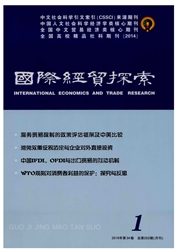

 中文摘要:
中文摘要:
公司集团终极控制人通过金字塔结构超额控制上市公司,在管理体制上采取集权和分权两种形式.终极控制人和CEO出于自身利益的最大化目标,可以通过若干途径影响公司集团内部资本配置效率.通过构建演化博弈模型,分析初始状态及各参数变化对内部资本配置行为的影响,为公司集团管理体制的选择提供一个经济学解释.研究结果表明,在不同的管理环境下终极控制人有不同的最优管理体制.企业的产出效率、激励机制、集权程度、管理成本以及CEO的非现金偏好度都将影响博弈的结果.
 英文摘要:
英文摘要:
The ultimate controller of a corporate group controls listed companies through the pyramid structure and takes two forms of centralization and decentralization in the management system. To maximize their own interests, the ultimate controller and CEO affect the efficiency of internal capital allocation in several ways. Attempting to provide an economic explanation on how to select the management system of corporate group, we build an evolutionary game model and analyze the impact of the initial state and the parameters on the behavior of internal capital allocation. The results show that the ultimate controller has different optimal management systems under different management environments. Output efficiency of enterprises, incentives, degree of centralization, management costs, and the non-cash preferences of a CEO all affect the result of the game
 同期刊论文项目
同期刊论文项目
 同项目期刊论文
同项目期刊论文
 期刊信息
期刊信息
